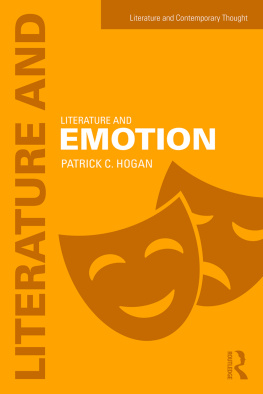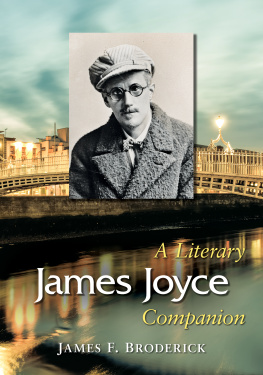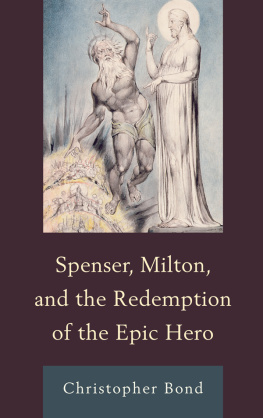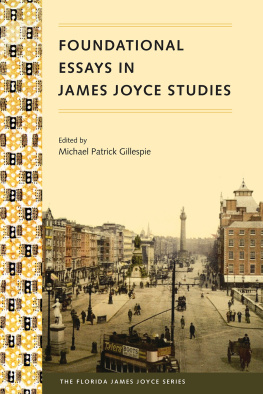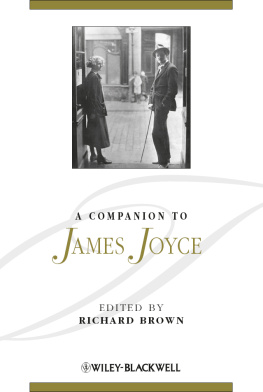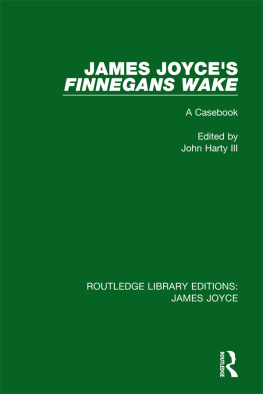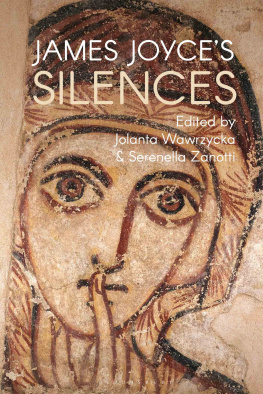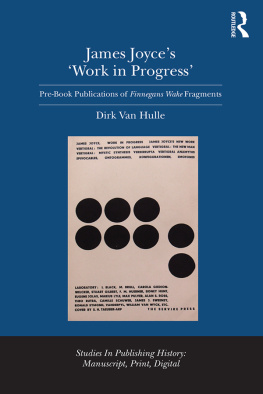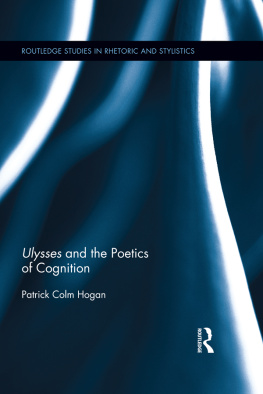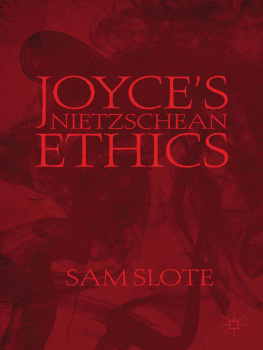Joyce, Milton, and the Theory of Influence
The Florida James Joyce Series
-i-
The Florida James Joyce Series Edited by Zack Bowen
The Autobiographical Novel of Co-Consciousness: Goncharov, Woolf, and Joyce, by Galya Diment ( 1994)
Shaw and Joyce: "The Last Word in Stolentelling," by Martha Fodaski Black ( 1995)
Bloom's Old Sweet Song: Essays on Joyce and Music, by Zack Bowen ( 1995)
Reauthorizing Joyce, by Vicki Mahaffey ( 1995)
Joyce's Iritis and the Irritated Text: The Dis-lexic Ulysses, by Roy Gottfried ( 1995)
Joyce, Milton, and the Theory of Influence, by Patrick Colm Hogan ( 1995)
-ii-
Joyce, Milton, and the Theory of Influence
Patrick Colm Hogan
University Press of Florida
Gainesville | Tallahassee | Tampa | Boca Raton Pensacola | Orlando | Miami | Jacksonville
-iii-
Copyright 1995 by the Board of Regents of the State of Florida Printed in the United States of America on acid-free paper All rights reserved
00 99 98 97 96 95 6 5 4 3 2 1
Library of Congress Cataloging-in-Publication Data
Hogan, Patrick Colm.
Joyce, Milton, and the theory of influence | Patrick Colm Hogan.
p. cm.--(The Florida James Joyce series)
Includes bibliographical references and index
ISBN 0-8130-1405-0 (alk. paper)
1. Joyce, James, 1882-1941--Knowledge--Literature. 2. Milton, John, 1608-1674-
Influence. 3. Influence (Literary, artistic, etc.)
I. Title. II. Series
PR6019.09Z587 1995
823.912--dc2095-14549
Portions of chapter 4, "Ulysses: Remorse and the Epic," were originally published in James Joyce Quarterly 24, no. 1 (Fall 1986): 55-72.
The University Press of Florida is the scholarly publishing agency for the State University System of Florida, comprised of Florida A&M University, Florida Atlantic University, Florida International University, Florida State University, University of Central Florida, University of Florida, University of North Florida, University of South Florida, and University of West Florida.
University Press of Florida
15 Northwest 15th Street
Gainesville, FL 32611
-iv-
Lalitae Uxori
-v-
[This page intentionally left blank.] | -vi- |
|
Contents
| Foreword by Bernard Benstock |
|
|
|
| 1. The Economy of Innovation and the Grammar of Influence |
|
| 2. Joyce Agonistes: Reading Milton in Contexts |
|
3. A Romantic Milton Masked with Dante Alighieri's Face: Joyce and
Milton before Ulysses |
|
| 4. Ulysses: Remorse and the Epic |
|
| 5. Dreaming of Eden: The Paladays Last of Finnegans Wake |
|
|
|
|
-vii-
[This page intentionally left blank.] | -viii- |
|
Foreword
The relationship between John Milton and James Joyce has hitherto been carefully ignored, except for the predictable statement of the obvious: that a few remarkable similarities were quickly offset by enormous differences. Blind geniuses who have written works of epic proportions, Milton and Joyce were separated by more than just three centuries--most important, by their nationalities and religion, and perhaps most of all by their vastly divergent creative temperaments. Joyce can easily be viewed as playing the cavalier to Milton's roundhead.
In Joyce, Milton, and the Theory of Influence, Patrick Hogan has looked far beyond these superficies and has isolated conjunctive factors that reopen many significant issues in Ulysses and Finnegans Wake, through the nature of a potent Miltonic influence--and beyond it. His fresh approach to the often tenuous aspects of literary influence provides him with a tool with which to view both Milton and Joyce anew, and in the process offers literary critics a theoretical method that can be extended to other authors as well. Yet, just as Milton is employed as a method for reading and reevaluating the Joyce texts, he also emerges newly explicated in the process. Joyce and Milton share the stage in their own rights, the theoretical materials elucidating the works of both geniuses.
Bernard Benstock
-ix-
[This page intentionally left blank.] | -x- |
|
Preface
The purpose of this book is twofold: to set out and illustrate a theory of influence and to explore the ill-understood relationship between James Joyce and John Milton, not merely as an exercise in literary history and the psychology of creation but as a way of understanding Joyce's literary works, especially his most difficult and rewarding works, Ulysses and Finnegans Wake. I undertook the former task as previous theories of influence appeared to me lacking in one of two ways. Some have sought deep explanations of influence, but have failed to make clear arguments, or even very clear generalizations; others have limited themselves to description, which has made their analyses clearer but often has rendered them superficial. In addition, writers on this topic have tended to focus on social aspects of influence to the exclusion of psychological aspects, or vice versa. In the opening chapter, I undertake to present a clear descriptive and explanatory account of influence, including both social and psychological factors. Moreover, in connection with the latter, I seek to articulate an understanding of influence that is coherent with recent developments in cognitive science as well as psychoanalysis.
Following some general remarks on Joyce's relation to precursors, the second chapter takes up Joyce's troubled relation to Milton, isolating some of the important political, psychological, and literary factors that entered into this complex influence, and emphasizing the ways in which the influence of one precursor is bound up with the influences of other precursors, events in the author's life, and so on. The third chapter concerns the less
-xi-
Miltonic of Joyce's major works: Dubliners, A Portrait of the Artist as a Young Man, and Exiles. The fourth and fifth chapters are devoted to Ulysses and Finnegans Wake, respectively, two works that are, I argue, deeply Miltonic in structure. These chapters also reinterpret aspects of Ulysses and Finnegans Wake--for example, the nature of Stephen's mourning and the thematic function of wakean cycles--that are important to our understanding of those works independent of their relation to Miltonic precedents. (The appendix gives a brief description of the editions of Milton that Joyce is known to have owned and used.)
Influence is like a thread woven through the affections and cognitions of an author; it both enters and redefines patterns of transference and understanding at once literary, social, and biographical. It is the product of an author's relation not only to a precursor's works but also to that precursor him- or herself, to the works and judgments and values of yet other authors through or against which the precursor and his or her works may be understood, to the larger social and political histories in which these occur, and so on. Moreover, any elements drawn from a precursor are necessarily warped by the pressures of the work at hand, its structures and sentiments, even its literary aims and market.


